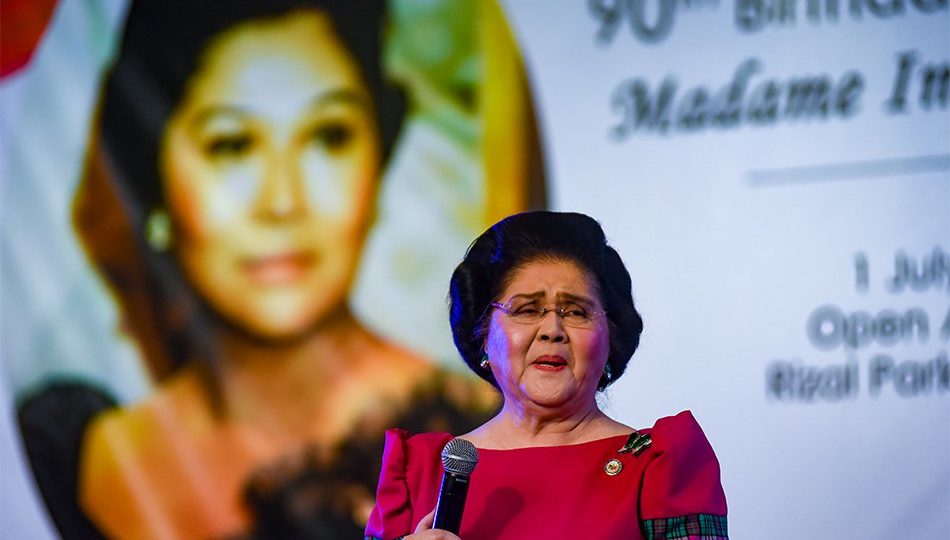A government push to reclaim a portion of the hundreds of billions of pesos believed to have ended up in the pockets of the Marcos clan during the dictatorship of Ferdinand Marcos has taken a massive blow with news yesterday afternoon that the nation’s anti-graft court has dismissed a PHP102 billion (US$1.95 billion) forfeiture case for lack of evidence.
In a decision dated Aug. 5 and announced yesterday at about 5pm, the Sandiganbayan (the Manila-based graft court) said the Presidential Commission on Good Government (PCGG) had failed to prove that the Development Bank of the Philippines (DBP) had given loans to companies owned by the late businessman Roberto Benedicto under Marcos’s orders.
It was not immediately clear if the PCGG plans to appeal the decision.
The PCGG is the agency responsible for recovering the ill-gotten wealth of the Marcoses and their friends. Their original complaint, which also targeted Marcos’s widow Imelda and eight former government officials, was filed on July 31, 1987.
It alleged that Benedicto used his close relationship with Marcos to secure hundreds of millions of pesos in loans from the DBP for his various shipping companies. The PCGG also alleged that Marcos has a stake in these shipping companies and enriched himself through them.
The PCGG further alleged that Benedicto had acted as a front for presidential daughter Imee Marcos, funneling profits from state-run broadcasting companies RPN9, IBC-13, and BBC 2 to the now-senator. The agency also alleged that the now-defunct Traders Royal Bank was used as a channel through which ill-gotten wealth was transferred to overseas-based Marcos bank accounts.
Read: Fashion website’s ‘reimagining’ of former First Lady Imelda Marcos draws flak online
“It saddens the Court that it took more than 30 years before this case is submitted for decision and yet, the prosecution failed to present sufficient evidence to sustain any of the causes of action against the remaining defendants,” the Sandiganbayan’s 2nd Division said in its decision.
“It is settled that in civil cases, the party making allegations has the burden of proving them by a preponderance of evidence. In addition, the parties must rely on the strength of their own evidence, not upon the weakness of the defense offered by their opponent.”
Aside from the Marcoses, the other defendants in the case were former DBP officials Rafael Sison, Placido Mapa Jr., Don Ferry, Jose Tengco Jr., Ramon Monzon, Generosa Olazo, Cynthia Africa, and Rodolfo Arambulo.
Benedicto, however, was not himself named as a defendant in the PCGG complaint, thanks to a 1990 deal he struck with the Philippine government, ceding PHP3.251 billion (US$62.207 million) of his assets in return for immunity for himself, his family, and employees, reported The Philippine Daily Inquirer.
Read: Imee Marcos tells critics not to be afraid of her, says she’s not out to seek revenge
Despite longstanding allegations of corruption and human rights abuses committed during President Marcos’ dictatorship, the Marcos family has enjoyed a comeback in Philippine politics. Imee was elected senator in this year’s mid-term elections, while her mother, Imelda, who was convicted of graft in November, is out on bail.
The family matriarch recently celebrated her 90th birthday in July, where hundreds of her supporters fell ill to suspected food poisoning.
Ferdinand Marcos served as president of the Philippines from 1965 to 1986. He declared martial law in 1972, a status that would last for nine years. Human rights groups estimate that tens of thousands were jailed without legitimate cause during Marcos’s reign, with some estimating that almost 1,300 extrajudicial killings took place.




